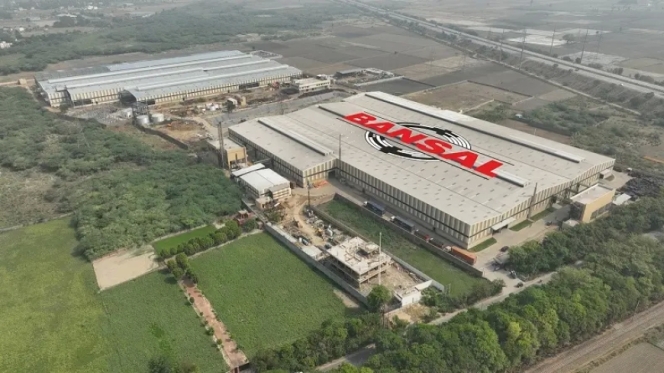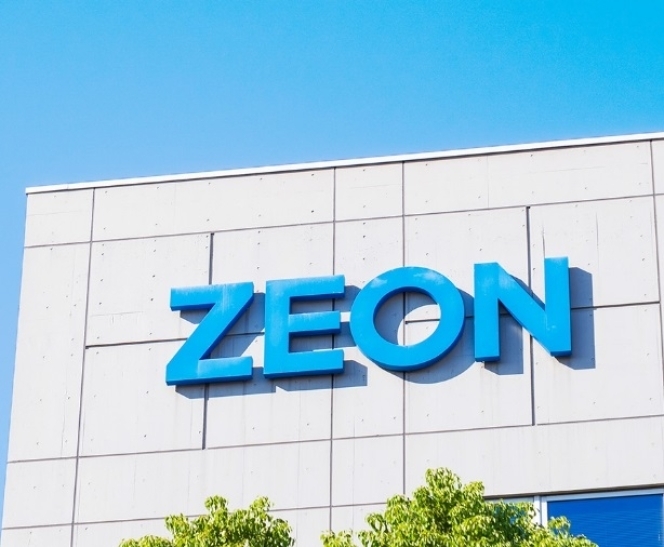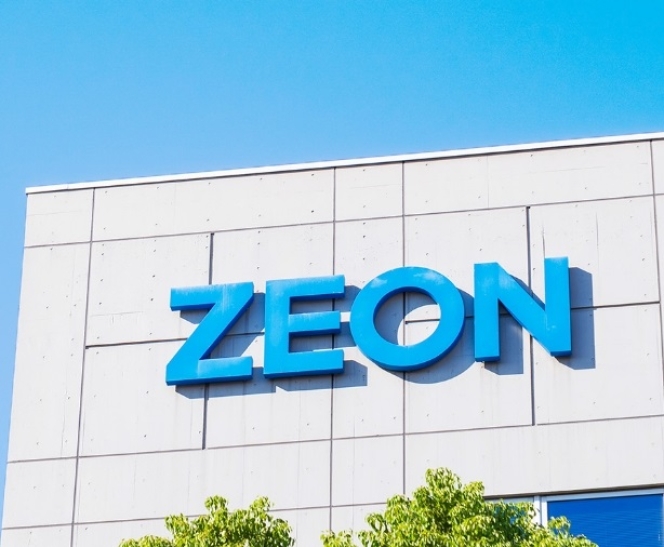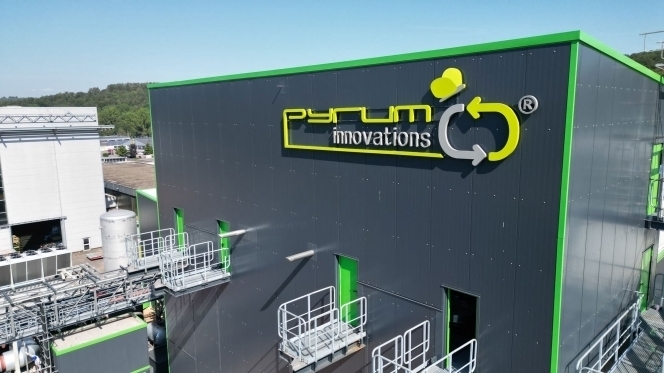Bansal Wires Triples Production Capacity With New Dadri Plant
- By Mohnish Bose
- May 06, 2025

Bansal Wire Industries (BWIL) unveiled its largest manufacturing facility in Dadri, bolstering India’s push to expand its manufacturing and infrastructure sectors. The 37-acre plant increases BWIL’s total manufacturing sites to five, with one in Bahadurgarh and three in Ghaziabad. The company’s production capacity has risen to 6 million metric tonnes per annum from 2.4 million tonnes previously.
The advanced facility produces specialised wires for diverse sectors, including agriculture, automotive, construction, power transmission, and general engineering. For the automotive industry, the plant manufactures steel wires, hose wires, and low-relaxation pre-stressed concrete steel strands used in bullet trains and metro systems.
The Dadri operation integrates industrial-scale processes with sustainability practices, including rainwater harvesting, solar power generation, acid-free wire cleaning and energy-efficient machinery. An on-site effluent treatment plant and landscaped areas are also featured. A new section for speciality wires was added this quarter, with IT/OT (Internal/Outer) wires coming soon.
Manufacturing Capabilities
The plant produces high-carbon steel wire, valued for its wear resistance and strength, making it suitable for door panels, vehicle frames, bushings, springs, and other automotive components. The facility also manufactures bead wire, a low-carbon wire with properties including weldability, ductility, high strength, fatigue resistance, adhesion to rubber, and malleability. Visible at the edge of a tyre, bead wire secures the tyre to the rim. Some wires receive zinc coating to increase corrosion resistance.

The bead wire production process follows multiple stages: procuring high-carbon steel rods, drawing high-tensile steel wire, passing through a lead bath, washing in an HCL tank, drying via heat treatment, applying zinc and copper coatings to form brass, wiping excess coating, cooling with chemical additives, collecting the wires and reducing them to thin filaments for those wires.
Each wire is drawn differently based on customer requirements before passing through Chinese and Indian furnaces. A 30-metre furnace operating at 980-1000°C restores wire properties after initial processing. After cleaning the HCL tank, zinc and copper coatings are applied. The chemical and subsequent stages occur in air-conditioned environments to maintain wire properties during separation into filaments. The 0.2mm filaments are combined to achieve 1.6-2.4mm thicknesses for commercial and TBR (Truck, Bus, and Radial) tyres.
The Dadri plant also produces hose wires and steel cords that enhance tyre strength, performance and stability. Additionally, it manufactures stainless steel wires that provide aesthetic appearance, corrosion and staining resistance, and low maintenance costs for automotive applications.
Business Performance
As a diversified wire manufacturer, BWIL reports 89 percent client retention and 20-25 percent year-on-year sales growth. Exports constitute 10-15 percent of total sales, with 75 percent destined for US and European markets. Pranav Bansal noted that despite China’s dominance in steel exports, India shows "tremendous positivity” for steel and stainless-steel wires.
He dismissed concerns about US reciprocal tariffs, explaining that with exports limited to 10 percent, the company maintains growth above 20 percent. BWIL’s revenue increased 52 percent in Q3FY25, and profits rose 171 percent.
Regarding price fluctuation, Pravin Bansal said, “We follow a cost + business model at BWIL. While the prices of steel change every month, the prices of stainless steel undergo change daily. The prices are revised as soon as there is a change, ensuring that there is no lag across 90 percent of products.”
He added, "Business works on quantity terms, not on revenue. Instead, revenue is a function of raw materials, and we’ve never given too much attention to the former.” However, he acknowledged that some automotive product prices fluctuate quarterly, creating a lag for products like bead wires and suspension spring wires, with costs passed on in subsequent quarters.
Expansion Plans
Pranav Bansal outlined the company's growth strategy: "Our business model is such that we can keep investing as per the needs of our customers. We don't need to wait for a specific capacity to be established before commencing business; we can expand on a to-go basis.”

For FY26, BWIL plans a 42-acre Sanand, Gujarat plant focused on low carbon and stainless steel wires. The INR 800-900 million facility will include 0.18 million tonnes of backward integration capacity and 60,000 tonnes of new wire production.
Currently serving 5,000 customers with 4,000 SKUs, BWIL's long-term strategy involves developing products with zero price fluctuation, which Pranav Bansal describes as "most helpful for the company’s supply chain cycle."
The company contributes to India's electric vehicle sector, which recorded sales of 1.94 million units by end-2024, with Tata Motors leading the market. BWIL's steel cords and specialised wires offer high tensile strength with reduced weight for EV applications. The company also produces copper-coated and aluminium-stranded wires for electric vehicles.
Zeon And Visolis Sign Binding Term Sheet To Advance Bio-Isoprene And SAF Commercialisation
- By TT News
- February 16, 2026

Zeon Corporation and Visolis Inc. have formalised their partnership by signing a binding term sheet, marking a pivotal advancement in the commercialisation of bio-based isoprene monomer and sustainable aviation fuel (SAF).
This collaboration, which now moves from technology verification towards project implementation, is built upon the progress made since their initial memorandum of understanding in March 2024 and the subsequent joint feasibility study announced in April 2025. Bio-based isoprene monomer serves as an essential component in the production of synthetic rubbers and various other materials, while SAF is increasingly recognised as a critical next-generation fuel for reducing carbon emissions within the aviation industry.
The newly established term sheet outlines a foundational agreement on the key elements required for a final investment decision. These include defining the business structure and the respective roles of each company, establishing technology and development strategies and advancing detailed engineering for the proposed production facility. Furthermore, the agreement covers the evaluation of potential sites, the process for engaging with suppliers, securing necessary regulatory approvals and planning the financing pathway.
The envisioned facility is set to commence commercial-scale output after successfully demonstrating mass production capabilities for biomass-based isoprene and SAF, utilising Visolis’ proprietary technology. Both companies are now committed to expediting the path to full-scale production and ensuring a steady supply of these sustainable products to the global market.
Zeon Backs Chemify To Accelerate Digital Chemistry Innovation
- By TT News
- February 12, 2026

Zeon Corporation has deepened its commitment to digital chemistry through a strategic investment and partnership with Chemify Limited, secured via its corporate venture arm Zeon Ventures Inc. Chemify, a growth-stage UK enterprise, is reshaping molecular research by integrating digital tools with automated laboratory systems. Its proprietary Chemputation technology translates molecular targets into executable chemical code, which operates directly on robotic platforms to complete integrated Design–Make–Test–Analyze cycles without manual intervention. This closed-loop automation allows Chemify to explore previously inaccessible areas of chemical space while reducing the timeline from concept to synthesized compound by up to tenfold.
A cornerstone of Chemify’s capability is its recently inaugurated Chemifarm in Glasgow – one of the most sophisticated automated facilities in the world for molecular design and construction. The facility enables accelerated iteration and autonomous synthesis of novel small molecules, converting chemical code into tangible compounds with unprecedented efficiency. These advances are critical for developing functional, synthesisable molecules that can contribute solutions to urgent global issues spanning public health, energy efficiency and environmental protection.
Zeon has been at the forefront of adopting digital methodologies in chemical R&D, recognising their transformative potential from an early stage. This investment is positioned to strengthen Zeon’s internal digital chemistry efforts and catalyse the invention of novel materials capable of addressing complex societal needs. The move aligns with Zeon’s STAGE30 corporate strategy, which targets a rise in revenue contribution from four key growth sectors – Mobility, Healthcare and Life Sciences, Telecommunications and Green Transformation – to 48 percent by fiscal 2028. By backing pioneering enterprises and cultivating advanced materials, Zeon continues to advance its dual vision of a sustainable planet and a secure, progressive society.
- Rubber Board Of India
- Rubber Producers’ Societies
- Sulphur Dusting
- Powdery Mildew
- Rubber Plantations
- Rubber Board Subsidy
Rubber Board Announces Sulphur Dusting Subsidy For Rubber Producers
- By TT News
- February 09, 2026

The Rubber Board of India has announced the opening of an application window for financial aid for sulphur dusting to combat powdery mildew disease in rubber plantations for the year 2026. The scheme is open to all Rubber Producers’ Societies (RPS) operating in both traditional and non-traditional growing regions.
From 10 to 20 February 2026, eligible societies must submit their applications online through the 'ServicePlus' portal on the official Rubber Board website. Societies requiring help with the submission process are advised to contact their nearest Rubber Board regional office or field station, or to consult the board's website for further guidance.
French Recognition Of TPO Bolsters Pyrum's Circular Economy Model
- By TT News
- February 09, 2026

Pyrum Innovations AG has welcomed the official recognition by French authorities on 17 January 2026, which classifies tyre pyrolysis oil (TPO) as a legitimate raw material for the chemical sector. This pivotal regulatory milestone for pyrolysis oil derived from end-of-life tyres substantially enhances the product’s integration into established chemical value chains. It also provides greater predictability for future purchase and partnership frameworks, thereby accelerating the development of industrial material cycles.
For Pyrum, which processes scrap tyres through pyrolysis to recover pyrolysis oil, industrial carbon black and steel, this decision underscores the critical need for standardised and reliable regulatory conditions. Such clarity is fundamental for scaling investments, production volumes and supply chains, particularly as the chemical industry and circular economy converge. The establishment of clear product categories is essential to ramp up the market for high-quality recycled raw materials.
The company remains committed to tracking further developments in France and the wider European dialogue regarding the classification and application of recycled feedstocks. Pyrum’s overarching objective is to expand industrial-scale recycling solutions for scrap tyres. This regulatory progress directly supports the company’s mission to secure long-term, quality-assured supply agreements with partners across the chemical industry, thereby advancing a more sustainable and circular economic model.
Pascal Klein, CEO, Pyrum Innovations AG, said, “The decision in France is an important step for the industrial use of pyrolysis oil from waste tyres. It supports a trend that we are seeing in many markets, where the chemical industry is seeking reliable, technologically robust and clearly classified alternative raw materials.”







Comments (0)
ADD COMMENT